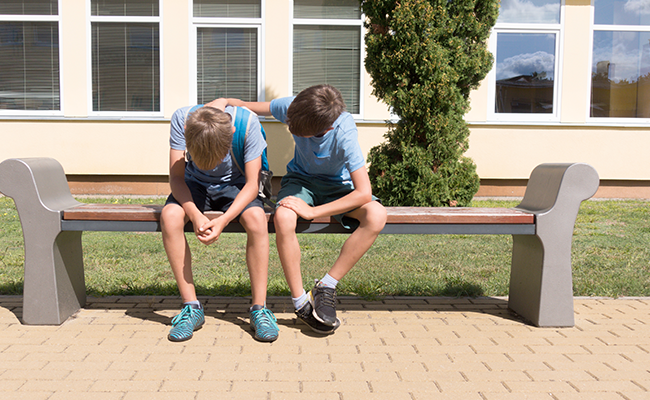
New research by The University of Queensland suggests teaching students to care about people’s feelings could help combat schoolyard bullying.
Dr Kana Imuta from UQ’s School of Psychology said interventions are needed as bullying has a profoundly negative impact on a victim’s mental and physical wellbeing.
“Bullying is an issue that children and adolescents face throughout development, beginning as young as three to four, continuing through the teens and even into adulthood,” Dr Imuta said.
“It can have a real impact on mental and physical wellbeing across a lifetime, to the extent where childhood bullying is linked to poorer wellbeing, economic and social outcomes in adulthood.
“By understanding the social-emotional intelligence of different bullying roles, targeted interventions can be developed to reduce negative interactions throughout important developmental stages.”
Reviewing 128 studies involving 187,454 children and adolescents aged between three and 18 years of age across 31 countries, the research provides insights into factors which drive children to engage in bullying situations.
It examined the empathy and perspective taking abilities of six key roles involved in a bullying situation: the bully, the follower, the victim, the bully-victim, the defender of the victim, and witnesses who choose to do nothing.
Researchers brought together the relevant findings from these studies and conducted a meta-analysis on the data, a statistical method that allows the integration of findings from multiple studies to see the overall trend in the data.
Dr Imuta said the research revealed an opportunity for effective anti-bullying interventions to be designed which focus on equipping classmates with the ability to put themselves in another’s shoes and empathise with others.
“Bullying is a dynamic group situation that involves everyone, it’s not just about teaching bullies to be empathetic,” Dr Imuta said.
“We need to empower everyone in the classroom to comprehend and care about other people’s feelings.
“It’s evident bullying is a worldwide issue, and this research can help to create effective interventions.”
A lack of empathy in bullies was a consistent finding across the analysis, regardless of differences in cultural background, age or gender.
Those who bully their peers may be perfectly capable of understanding their antisocial acts hurt others, but still engage in them due to deficits in empathy.
In contrast, children and adolescents who choose to defend victims appear to be highly capable of understanding what others are thinking and feeling, and they are also highly empathetic.
The combination of their superior perspective taking abilities and tendency to vicariously experience other peoples’ feelings appear to empower them to take action against the mistreatment of others.
The research is published in Psychology Bulletin.
Media: Dr Kana Imuta k.imuta@uq.edu.au; UQ Communications, Bridget Druery, b.druery@uq.edu.au, (+61) 435 221 246 @UQHealth



